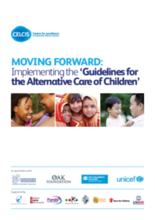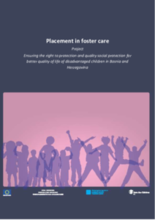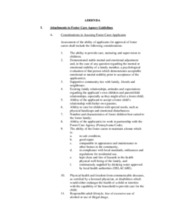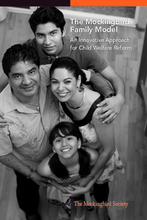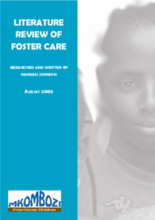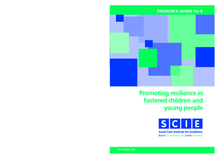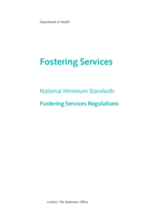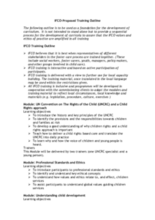This section offers guidance on the recruiting, training, supporting, and monitoring of foster and kinship care arrangements, agencies, and caregivers.
Displaying 1 - 10 of 11
The negative impact of childhood maltreatment, which can often extend well into adulthood, consistently appears to be ameliorated if victimized children possess several resiliencies or strengths.
This handbook, Moving Forward: Implementation of the ‘Guidelines for the Alternative Care of Children,’ is aimed at legislators, policy-makers and decision-makers, as well as professionals and care providers, to support the implementation of the Guidelines for the Alternative Care of Children, endorsed by the United Nations General Assembly in 2009. It explains the key thrusts of the Guidelines, outlines the kind of policy responses required, and describes ‘promising’ examples of efforts already made to apply them in diverse communities, countries, regions and cultures.
This document contains the minimum standards for placing children in foster care in Bosnia and Herzegovina. The Minimum Standards includes service specifications, instruments for monitoring compliance with standards, and guidelines for use of the minimum standards for day centers for children with developmental disabilities.
Outlines additional actions and considerations foster care workers should follow when implementing the IFCO Guidelines for Foster Care.
From preventative strategies to transitional and permanency solutions, the Mockingbird Family Model (MFM) offers a comprehensive support structure for families and children across the continuum of the child welfare experience. This resource briefly describes the MFM and its current activities.
Serves as an example of fostering service standards from the perspective of children, birth families, and foster caregivers
A brief overview of foster care practice in the UK, Australia, South Africa, Uganda, and Tanzania. It includes information and lessons learnt on how caregivers are recruited and trained in these countries, how a child is placed, and how family support services are offered.
A guide to building a child-focused foster system that works with the strengths of children and young people to enhance their resilience and ability to cope with adversity. It outlines practical ways to support caring relationships and create positive educational experiences that bolster self-esteem and self-efficacy.
A set of standards for the delivery of a national fostering service. It includes standards for the management of the service, the delivery of care, reunification with birth families, and working with caregivers.
A training outline that conveys IFCO values and ethics of practice in foster care services. It provides 13 modules dealing with issues such as the rights of the child, child development, state care, foster care, transition from care, and legal and administrative management of child protection services.

